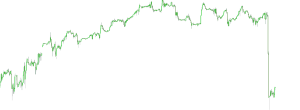
U.S. 500 Stock Chart
The Federal Reserve recently announced its third consecutive interest rate cut of 2024, reducing the benchmark rate to a range of 4.25%-4.5%. While this marks a significant step toward managing inflation, the Fed has signalled a cautious approach for 2025, planning only two further cuts instead of the previously projected four. This reflects ongoing concerns about persistent inflation, which is expected to remain above target at 2.5%, and the need to avoid over-stimulating the economy. Despite these challenges, the U.S. economy continues to outperform global peers, with robust growth and a resilient labour market.
For UK businesses, the Fed’s actions could influence trade dynamics, particularly through the energy sector. With the U.S. economy maintaining strong growth, there may be opportunities for increased exports of liquefied natural gas (LNG) and other energy resources to Europe, including the UK. However, persistent inflation and tighter monetary policy could raise the cost of U.S. exports, potentially impacting supply agreements and pricing strategies.
UK companies in the energy sector should monitor the potential knock-on effects of U.S. monetary policy on global energy markets. Staying agile in procurement and pricing strategies while seeking diversification in supply chains could help mitigate risks. With the UK also transitioning toward net-zero goals, understanding how these developments might shape global investment flows in renewable energy and infrastructure will be essential for long-term planning.
